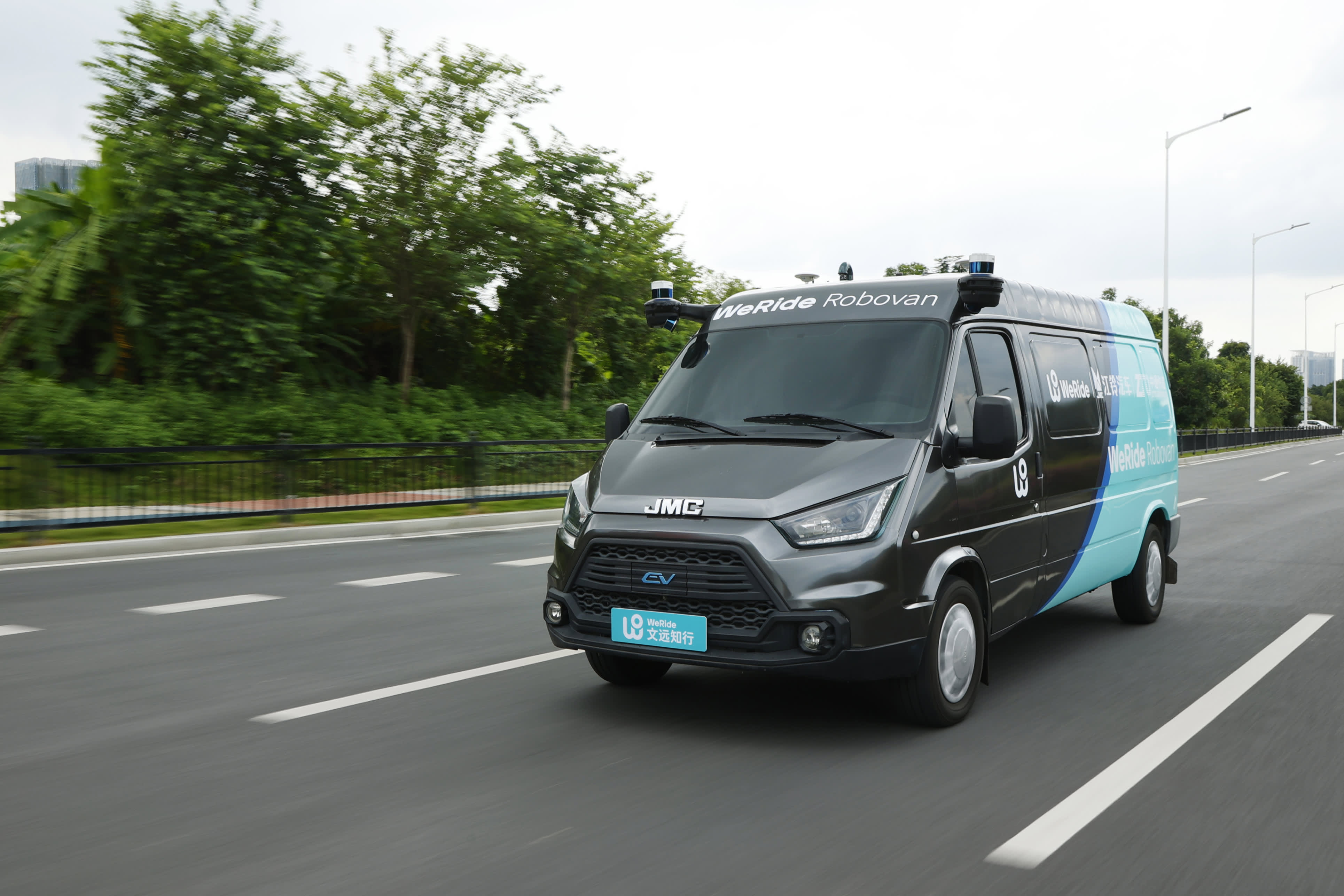GUANGZHOU, China — Chinese autonomous driving start-up WeRide has partnered with a top carmaker and delivery company to launch a self-driving cargo van.
The strategic partnership between WeRide, automaker Jiangling Motors (JMC) and delivery firm ZTO Express, aims to commercialize and mass produce the “Robovan” for urban logistics.
Nissan-backed WeRide makes autonomous driving systems for various vehicles. Since 2019, it has been testing robotaxis, or autonomous cabs, on the streets of Guangzhou, China where it is headquartered. The company opened the service to members of the public last year in limited areas of the city.
The company has also been testing a self-driving bus which it calls the Robobus. The testing of these vehicles has helped it develop the Robovan.
“We find the boundary between passenger vehicle and urban logistics vehicle is vanishing,” Tony Han, CEO of WeRide, told CNBC on Thursday. “It’s an autonomous driving vehicle. If you put a seat there it can serve as a robotaxi car. If you put a cabinet there it is really a logistics car.”
“These two applications [robotaxi and logistics] can share a technology and both of them might generate potentially significant amount revenue and profit. Why don’t we do both?” Han said.
WeRide will provide the autonomous driving system for the Robovan, JMC will handle manufacturing, while ZTO will deploy the vehicles for their logistics operations.
Han said the company will likely set up two or three locations to do Robovan tests and improve the performance of the vehicle. Once those pilot projects are completed, the Robovan can be rolled out at a large scale. Han declined to provide a timeline for this but said he expects “tens of thousands” of the vehicles to be deployed in the future.
WeRide is one of China’s autonomous driving start-ups, valued at around $3.3 billion. It competes with companies including Baidu and Pony.ai. It has been expanding quickly and earlier this year acquired an autonomous trucking company called MoonX.AI. MoonX already had a relationship with ZTO Express before the acquisition.
Han said WeRide had been working with JMC on a research project since 2019 on logistics. When MoonX was acquired, WeRide managed to bring ZTO Express on as a partner.
WeRide’s business model will revolve around it being involved in the eventual operation of ZTO’s logistics network using Robovans, rather than solely licensing out its technology.
“By doing this we can have recurring revenue and same time get feedback to improve the product,” Han said.
Chip shortage
The global semiconductor shortage is affecting industries across the board including automakers.
WeRide’s autonomous driving systems rely on various chips given the amount of sensors involved. Han said it may affect the company when it begins to produce vehicles on a larger scale.
“Because we are using sensor towers, all these sensors and computational units, I think the shortage of these kind of chips may affect our delivery and … our rollout plan,” Han said.
He said, that the chip shortage will not affect the current project with JMC and ZTO. But he said that if the companies need to make 10,000 to 50,000 Robovans then the company could see an effect.
“We have to work in advance about our supply chain and how to protect our supply chain,” Han said.

stromectol 3mg online – order candesartan 8mg purchase carbamazepine for sale
azithromycin 500mg ca – buy tinidazole 300mg bystolic price
buy lasix 40mg online cheap – furosemide brand oral betnovate 20 gm
cheap viagra tablets – purchase viagra tadalafil 5mg cost
generic lipitor 40mg – purchase lipitor generic buy prinivil without prescription
omeprazole where to buy – order atenolol generic atenolol 50mg oral
zovirax 800mg sale – crestor sale rosuvastatin 20mg us
buy cheap generic domperidone – flexeril us cyclobenzaprine buy online
inderal 20mg oral – methotrexate 10mg price methotrexate over the counter
order coumadin 2mg – buy cozaar 50mg pill cozaar 25mg pills
buy esomeprazole no prescription – order imitrex 25mg online cheap order imitrex 25mg pills